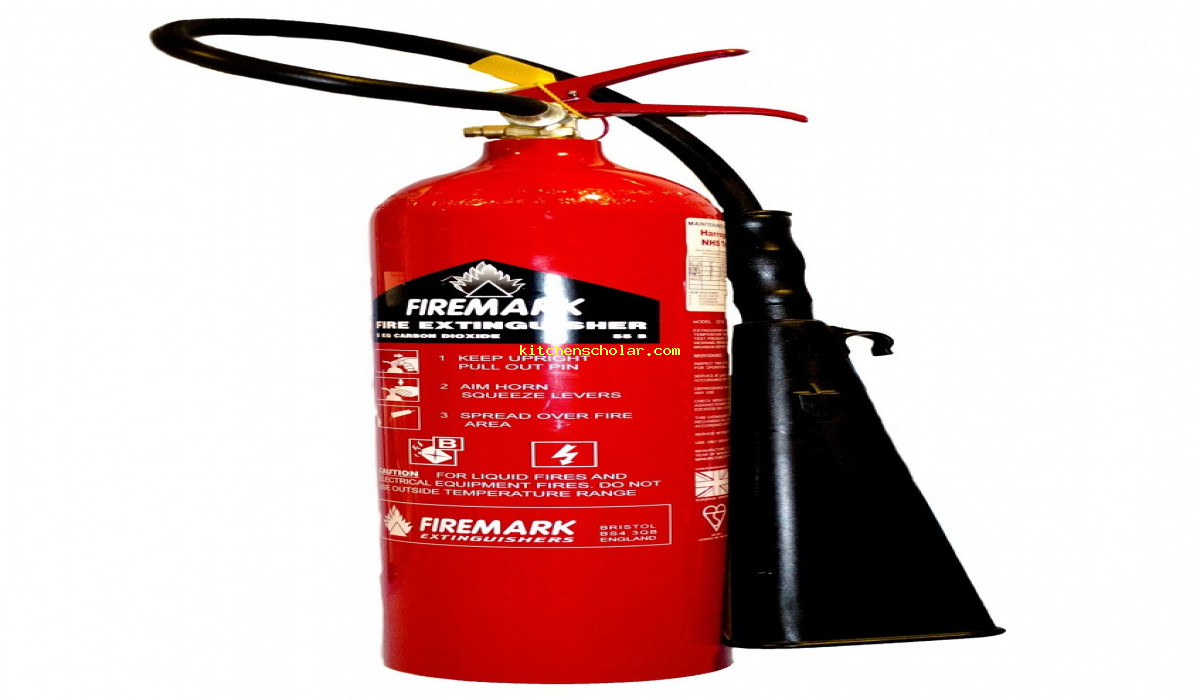Choosing the Right Fire Extinguisher for Your Home – Kitchen Must-Haves!. Don’t wait until it’s too late to protect your kitchen and home from potential fires. Learn about the differences between kitchen and home fire extinguishers and why having both could save your life. Stay safe and prepared with these essential fire safety tools.
Choosing the Right Fire Extinguisher
Choosing the Right Fire Extinguisher for Your Home – Kitchen Must-Haves!
Choosing the Right Fire Extinguisher for Your Home – Kitchen Must-Haves!. kitchen and home Choosing the Right Fire Extinguisher for Your Home – Kitchen Must-Haves!

Kitchen vs Home Fire Extinguisher: Understanding the Differences
Fire extinguishers are essential in every household as they provide a first line of defense against fires. However, choosing the right fire extinguisher for your home can be quite confusing. There are different types of fire extinguishers availableChoosing the Right Fire Extinguisher, each designed for specific types of fires. In this article, we’ll be discussing the differences between kitchen and home fire extinguishers,Choosing the Right Fire Extinguisher the importance of having both in your home, and which one should you prioritize.
Kitchen Fire Extinguishers: What You Need to Know
Kitchen fires are the leading cause of home fires and injuries. Due to the presence of flammable cooking materials and appliancesChoosing the Right Fire Extinguisher, it’s crucial to have a fire extinguisher specifically designed for kitchen fires. Kitchen fire extinguishers can help put out cooking fires before they spread and cause substantial damage. Here are some key things you need to know about kitchen fire extinguishers:
Brands have different ratings for kitchen fire extinguishers
Kitchen fire extinguishers are rated based on the types of fires they can extinguish. The ratings are classified into classes A, B, C, and K. Class A is for ordinary combustibles, such as wood and paper; class B is for flammable liquids like oil and gas; class C is for electrical fires, and class K is for cooking oils and fats.
UL300 is the standard for kitchen fire extinguishers
UL stands for Underwriters Laboratories, a global safety organization that tests and certifies fire extinguishers. UL300 is the standard specifically designed for kitchen fire extinguishers. A UL300 certified extinguisher contains a wet chemical agent that can extinguish kitchen fires by reacting with the hot oilChoosing the Right Fire Extinguisher, creating a foamy layer that starves the fire of oxygen.
Consider the size and placement of your kitchen fire extinguisher
When choosing a kitchen fire extinguisherChoosing the Right Fire Extinguisher, it’s essential to consider its size and placement. The extinguisher should be big enough to handle a typical kitchen fire and be placed in an accessible location. It’s also recommended to have multiple fire extinguishers in the kitchen, with one near the stove and another near the exit.
Home Fire Extinguishers: Understanding the Basics
Unlike kitchen fire extinguishersChoosing the Right Fire Extinguisher, home fire extinguishers are designed to handle a broader range of fires. They usually come in larger sizes and are equipped to handle different types of fire emergencies. Here are some essential things to know about home fire extinguishers:
ABC or BC ratings are most commonly used for home fire extinguishers
As mentioned earlier, fire extinguishers are rated based on the types of fires they can extinguish. For home fire extinguishers, ABC or BC ratings are commonly used. These ratings mean that the extinguisher is suitable for class A, B, and C fires. Class A-B-C extinguishers contain dry chemicals that suffocate the fire, making them effective for various fire types.
Check the placement and size of your home fire extinguisher
Similar to kitchen fire extinguishers, the placement and size of your home fire extinguisher are essential factors to consider. It should be placed in an accessible location and be large enough to handle a potential fire emergency in your home. It’s recommended to have at least one fire extinguisher on each level of your homeChoosing the Right Fire Extinguisher.
What Should You Prioritize: Kitchen or Home Fire Extinguisher?
Choosing between kitchen and home fire extinguishers might be a difficult decision. However, the most critical factor you need to consider is the risk of fire in your home. If you frequently use your kitchen, it’s essential to prioritize a kitchen fire extinguisher. However, it’s always wise to have both types of extinguishers in your home to be prepared for any potential fire emergency.
It’s also important to note that a kitchen fire can quickly spread to other areas of your home. In such cases, a home fire extinguisher can come in handy. Therefore, it’s crucial to have both extinguishers and place them in easily accessible locations.
Choosing the Right Fire Extinguisher for Your Home – Kitchen Must-Haves!
Don’t wait until it’s too late to protect your kitchen and home from potential fires. Learn about the differences between kitchen and home fire extinguishers and why having both could save your life. Stay safe and prepared with these essential fire safety tools.. Extinguisher Choosing the Right Fire Extinguisher for Your Home – Kitchen Must-Haves!
Kitchen vs Home Fire Extinguisher: Which One is Right for You?
When it comes to fire safety, having the right equipment could mean the difference between a small manageable fire and a full-blown disaster. One essential tool that every household should have is a fire extinguisher. Choosing the Right Fire Extinguisher, with so many options available, it can be challenging to determine the best one for your home. In this article, we’ll compare and contrast the differences between kitchen fire extinguishers and home fire extinguishers to help you make an informed decision on which one is right for your household.
Kitchen Fire Extinguishers
A kitchen fire extinguisher is designed specifically for use in the kitchen area. These types of fire extinguishers are usually smaller and have specific features that make them suitable for kitchen fires. Here are a few key points to keep in mind when considering a kitchen fire extinguisher:
- – Easy to access: Kitchen fire extinguishers should be easy to reach in case of an emergency. They are typically kept in or near the kitchen area, such as under the sink or on the kitchen wall. This accessibility allows for quick response and minimal damage in case of a kitchen fire.
- – Suitable for grease and oil fires: The most common type of fire in the kitchen is a grease or oil fire. Kitchen fire extinguishers are designed to handle these types of fires specificallyChoosing the Right Fire Extinguisher, making them more effective in putting them out than traditional fire extinguishers.
- – Can be wall mounted: Since kitchen fires are more likely to occur near stoves and ovens, some kitchen fire extinguishers come with wall mounts for easy installation. This feature ensures that the extinguisher is always in its designated spot and can be accessed quickly.
- – Specialized extinguishing agent: Kitchen fire extinguishers use a specialized extinguishing agent, such as wet chemical or foam, to smother and put out grease fires. These agents are specifically designed to cling to the oil and grease, creating a blanket effect that cuts off the oxygen supply to the fire.
Home Fire Extinguishers
Home fire extinguishers, on the other hand, are designed to be used in various areas of the house, including the kitchen. They are larger in size and offer a broader range of features, making them suitable for various types of fires. Here are a few essential points to keep in mind about home fire extinguishers:
- – Multipurpose: Home fire extinguishers are designed to tackle different types of fires, including wood, paper, cloth, or flammable liquids. This versatility makes them a smart choice for households with multiple fire hazards.
- – Suitable for larger fires: Since home fire extinguishers are larger than kitchen fire extinguishers, they are more effective at handling larger fires. They have a more extended range and can release larger amounts of fire-retardant chemicals to smother the flames.
- – Can be used in multiple locations: Unlike kitchen fire extinguishers that are mainly used in the kitchen, home fire extinguishers can be used in any area of the house. This feature allows for more flexibility and may be a more practical choice for homes with more than one floor or multiple points of fire risk.
- – Variety of extinguishing agents: Home fire extinguishers come in different types of extinguishing agents, with the most common being dry chemical, carbon dioxide, and water. These agents are suitable for different types of fires and can be chosen based on the potential fire hazards in the home.
Which One Should You Choose?
When it comes to choosing between a kitchen fire extinguisher and a home fire extinguisher, it’s essential to consider your specific needs and potential fire hazards in your household. If you mainly use your kitchen for cooking and are concerned about grease and oil fires, a kitchen fire extinguisher may be the best option for you. However, if your home has multiple potential fire hazards, a home fire extinguisher may be a better choice.
It’s also crucial to remember that you can have both a kitchen fire extinguisher and a home fire extinguisher in your household. In fact, having multiple fire extinguishers in various locations increases your chances of putting out a fire efficiently, especially if it’s in its early stages. However, it’s essential to ensure that all fire extinguishers in your home are regularly inspected and maintained to ensure they are in proper working condition.
Conclusion
In summary, both kitchen fire extinguishers and home fire extinguishers have their unique features and benefits. While kitchen fire extinguishers are more suitable for use in the kitchen area, home fire extinguishers offer more versatility in tackling various types of fires. Ultimately, the decision on which one to choose will depend on individual preferences and the potential fire hazards in your household. Regardless of the option you go with, it’s essential to have a well-maintained fire extinguisher in your home to protect your family and property in case of a fire emergency. Choosing the Right Fire Extinguisher for Your Home – Kitchen Must-Haves!

Choosing the Right Fire Extinguisher for Your Home – Kitchen Must-Haves!
What is the difference between a kitchen and home fire extinguisher?
Kitchen and home fire extinguishers are both essential tools for fighting fires, but they have some key differences. A kitchen fire extinguisher is specifically designed for use in the kitchen, where there is a higher risk of grease and oil fires. A home fire extinguisher, on the other hand, is meant to be used in any area of the home where there is a potential fire hazard.
Can I use a kitchen fire extinguisher in other areas of my home?
While a kitchen fire extinguisher may work in other areas of your home, it is not recommended. Kitchen fire extinguishers are designed to fight specific types of fires, and may not be effective for other types of fires. It’s best to have a home fire extinguisher on hand for any potential fire hazards in your home.
Why do I need a kitchen fire extinguisher if I already have a home fire extinguisher?
Having a kitchen fire extinguisher is crucial because fires in the kitchen are more likely to occur and may require a different type of extinguisher than a home fire would. Kitchen fire extinguishers are also designed to be smaller and easier to handle, making them ideal for kitchen use.
What types of fires can a kitchen fire extinguisher put out?
Kitchen fire extinguishers are designed to put out fires caused by cooking oils, fats, and grease, also known as Class K fires. These types of fires can quickly become out of control, so it’s important to have a kitchen fire extinguisher on hand to quickly and safely put out the fire.
Can I use a home fire extinguisher in my kitchen?
While a home fire extinguisher may be able to put out a kitchen fire, it is not specifically designed for those types of fires. Using a home fire extinguisher in the kitchen may not be as effective and could potentially make the fire worse. It’s best to use a kitchen fire extinguisher for any fires in the kitchen.
Do I need to have a kitchen fire extinguisher if I have a fire blanket?
While a fire blanket is a useful tool for smothering small firesChoosing the Right Fire Extinguisher, it may not be enough to put out a kitchen fire. A kitchen fire extinguisher is specifically designed to put out fires in the kitchen, making it a necessary addition to your fire safety equipment.
What are the different types of kitchen fire extinguishers?
There are a few different types of kitchen fire extinguishers, including wet chemical, dry powder, and carbon dioxide. Wet chemical extinguishers are the most common for kitchen useChoosing the Right Fire Extinguisher, as they can put out Class K fires and also have a mild detergent to help prevent reignition.
How often do I need to replace my kitchen fire extinguisher?
It’s recommended to replace your kitchen fire extinguisher every 6 yearsChoosing the Right Fire Extinguisher, even if it hasn’t been used. This ensures that the extinguisher is still in proper working condition and can effectively put out a fire if needed.
Can I use a kitchen fire extinguisher on an electrical fire?
No, it is not safe to use a kitchen fire extinguisher on an electrical fireChoosing the Right Fire Extinguisher. Using water-based extinguishers, like those commonly found in kitchens, on an electrical fire can cause electrocution. It’s best to use a dry powder or carbon dioxide extinguisher for electrical fires. Choosing the Right Fire Extinguisher for Your Home – Kitchen Must-Haves!

